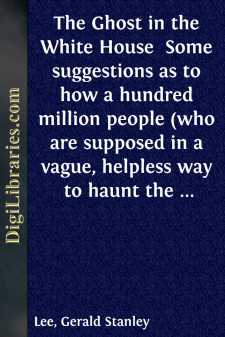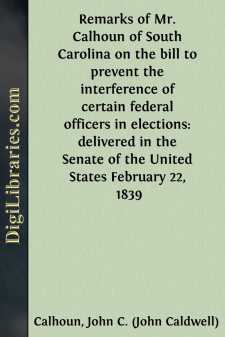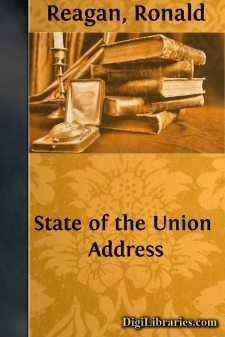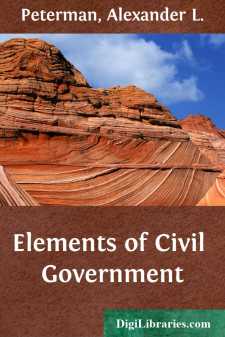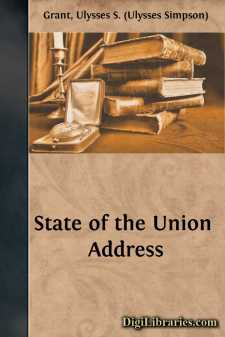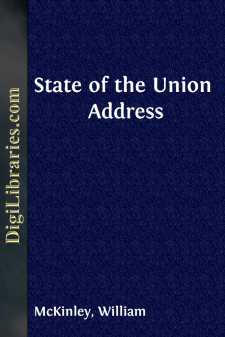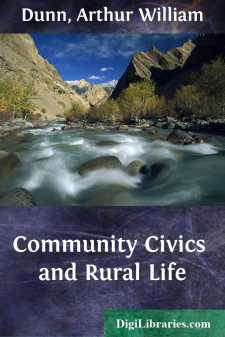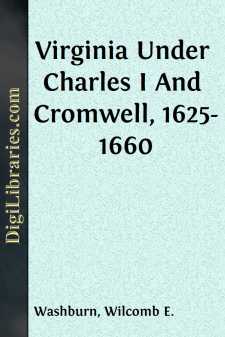Political Science
- Conspiracy & Scandal Investigations 1
- Constitutions 7
- Economic Conditions 10
- General 46
- Government 6
- History & Theory
- Peace 1
History & Theory Books
Sort by:
GIST The Crowd is my Hero. The Hero of this book is a hundred million people. I have come to have the feeling—especially in regard to political conventions, that it might not be amiss to put forward some suggestions just now as to how a hundred million people can strike—make themselves more substantial, more important in this country, so that we shall really have in this country in time a hundred...
more...
Mr. President: At the last session of Congress, it was avowed on all sides that the public debt, as to all practical purposes, was in fact paid, the small surplus remaining being nearly covered by the money in the Treasury and the bonds for duties which had already accrued; but with the arrival of this event our last hope was doomed to be disappointed. After a long session of many months, and the most...
more...
INTRODUCTION Niccolo Machiavelli, the first great Italian historian, and one of the most eminent political writers of any age or country, was born at Florence, May 3, 1469. He was of an old though not wealthy Tuscan family, his father, who was a jurist, dying when Niccolo was sixteen years old. We know nothing of Machiavelli's youth and little about his studies. He does not seem to have received...
more...
by:
Ronald Reagan
Mr. Speaker, Mr. President, distinguished Members of the Congress, honored guests, and fellow citizens: Today marks my first State of the Union address to you, a constitutional duty as old as our Republic itself. President Washington began this tradition in 1790 after reminding the Nation that the destiny of self-government and the "preservation of the sacred fire of liberty" is "finally...
more...
CHAPTER I. INTRODUCTORY.[1]--People living in the United States owe respect and obedience to not less than four different governments; that is, to four forms of organized authority. They have duties, as citizens of a township or civil district, as citizens of a county, as citizens of some one of the States, and as citizens of the United States. All persons are, or have been, members of a family; some...
more...
To the Senate and House of Representatives: In coming before you for the first time as Chief Magistrate of this great nation, it is with gratitude to the Giver of All Good for the many benefits we enjoy. We are blessed with peace at home, and are without entangling alliances abroad to forebode trouble; with a territory unsurpassed in fertility, of an area equal to the abundant support of 500,000,000...
more...
JEFFERSON AS A TACTICIAN The word "tactician" is usually applied to military movements, but it has a broader meaning than this; it embodies the idea of a peculiar skill or faculty—a nice perception or discernment which is characterized by adroit planning or management, artfully directed in politics or diplomacy in government. "Of all creatures the sense of tact is most exquisite in...
more...
by:
William McKinley
To the Senate and House of Representatives: It gives me pleasure to extend greeting to the Fifty-fifth Congress, assembled in regular session at the seat of Government, with many of whose Senators and Representatives I have been associated in the legislative service. Their meeting occurs under felicitous conditions, justifying sincere congratulation and calling for our grateful acknowledgment to a...
more...
This book, like the author's earlier one, The Community and the Citizen, is a "community civics" text. Two purposes led to the preparation of this second volume. The first was to produce a text that would meet the needs of pupils and teachers who live outside of the environment of the large city. Training for citizenship in a democracy is a fundamentally identical process in all...
more...
Woodrow Wilson named the first volume of his History of the United States "The Swarming of the English." We might go further and compare the colonization and expansion in the New World to a fissioning process in which individual atoms are torn loose from a former pattern of coherence and fused into new and strange patterns. The United States, indeed, is still in the process of fusion following...
more...


